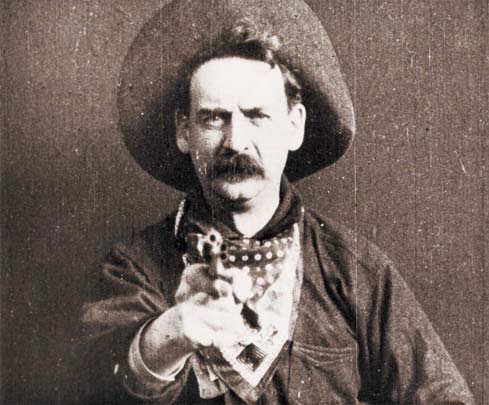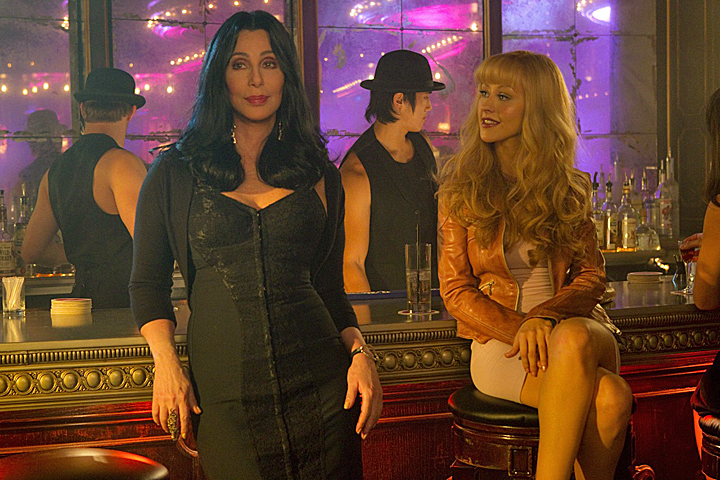Q. There are several reports about extreme reactions of early cinema audiences that I find hard to believe. It is said that viewers of the first movies were frightened by what they saw, such as moving images of an incoming train.
Bob Seidensticker writes in FutureHype: “[When] the first movies were shown publicly, one presented a scene at the seashore — no monsters, no invading army, just waves rolling in along a beach. The crowd was terrified. They ran from the makeshift movie theater to escape the onrushing water.” While this makes a great story, I wonder if film historians can confirm it. It is cited so often that it feels like an urban myth, allowing us modern people to mock our oh-so-naive ancestors. Hanno Zulla, Hamburg, Germany
A. Your instincts are correct. I appealed for an authoritative answer from the esteemed film historians David Bordwell and Kristin Thompson of the University of Wisconsin. David replies:
“This is a favorite bete noir of Kristin’s and mine. One of my students, Michael Newman, now out teaching on his own, wrote an excellent and thorough blog entry on this sort of myth here: >zigzigger.blogspot.com/2007/02/film-history-fakelore.html
Newman’s blog also demolishes several other fondly held beliefs, some of them passed along as facts by such as me. For example, he questions whether (1) “The Great Train Robbery” was the first film to tell a story; (2) D.W. Griffith invented or discovered “film language,” (3) “The Jazz Singer” was the first sound film, (4) “Citizen Kane” is the undisputed heavyweight champion of cinematic masterpieces, (5) John Cassavetes (or Sam Fuller, or Andy Warhol) is the “father of independent cinema,” and (6) “Jaws” was the first summer blockbuster and its success killed the more authentic auteur cinema of everyone’s beloved early 1970s.
Q. After seeing “Walk Hard” and reading your review, I found it curious that you referred to the scene with the unexplained penis as establishing a “standard for gratuitous nudity.” I found it actually served to comment on the use of gratuitous nudity. The scene also contains a considerable amount of gratuitous female nudity. But when the male nudity is added, it’s so absurd, it casts a light on the female nudity. I should also add that I thought it was very funny, as did my wife.
Glenn Stoops, Astoria, N.Y.
A. And Maria Marella-Kopeck of north suburban Lake Villa, writes: “This movie and ‘Superbad’ were both produced by Judd Apatow, and ‘Superbad’ had all kinds of drawings of penises in the movie (Seth’s character was obsessed with drawing them). Perhaps it was a way for Apatow to link the two movies. Or, maybe he thought it was funny.”
Ebert again. You guessed right. Apatow has declared, “It’s my penis.” And he has promised we can look forward to seeing a penis in all of his future films. He told MTV: “It really makes me laugh in this day and age, with how psychotic our world is, that anyone is troubled by seeing any part of the human body.”
Q. I have to agree with Anoop Raj, who wonders why Criterion is releasing “Armageddon.” The movie will be released in editions by other companies eventually. Why not issue movies that can’t be found anywhere else? For instance, “Hobson’s Choice” with Charles Laughton and “A New Leaf” with Elaine May and Walter Matthau are not yet available on DVD.
Kathleen Church, Chicago
A. Yes, but the Criterion approach allows for an in-depth examination of a genre and style of film that deserves discussion. I agree with your choices, and want to know why in the world Bill Forsyth’s masterpiece “Housekeeping” (1987) isn’t on DVD.
Q. This is growing into a large debate online: Who set the trap for Will Smith’s character and left him dangling in “I Am Legend“? The majority believe one of the mutants cleverly copied Robert Neville’s traps, and the rest believe he stumbled upon one of his own traps. Did the writers intend on this being ambiguous, or is there an answer from them?
Jeff Jung, New York City
A. The rules are, if the film itself does not contain an answer, one is not allowed to be supplied from outside. Therefore, we do not know which of those only two possibilities is the case.
Q. I saw Sarah Polley’s “Away From Her” last night and while it is one of the most beautiful films I have ever seen, I am troubled by one thing. Why is all the credit and Oscar buzz for Julie Christie when the film focuses mainly on Gordon Pinsent? Christie’s character always seems at a distance and the story is mostly told through his eyes.
Jerry Roberts, Birmingham, Ala.
A. Studios position their Oscar hopefuls, and no doubt correctly believe the best actor category is overcrowded this year, while Christie has a shot at best actress. I agree with you about the excellence of Pinsent’s performance.
Q. In your review of “Alvin and the Chipmunks” you state that the film is “about as good as a movie with these characters can probably be.” I don’t understand what you mean by this. Aren’t you the same person who also said a good movie can be made out of virtually any premise? Surely, a movie starring singing chipmunks could have been wittier, funnier, and more clever than this one.
Andrew Shuster, Merrick, N.Y.
A. Singing chipmunks, yes. Alvin, Theodore and Simon, probably not. They need singing lessons.
Q. Paul Dooley was mentioned in the Answer Man as playing one interesting and funny parent in teenage movies for his part in “Breaking Away.” He also has a touching moment with Molly Ringwald in “Sixteen Candles” after he realizes he had forgotten his daughter’s 16th birthday. But John Hughes has usually painted his parents as absent (“The Breakfast Club,” “Ferris Bueller's Day Off“) or needing to be cared for (“Pretty in Pink“). Even in “Home Alone,” the parents actually forgot their own kid. What kind of issues does this guy have with his own parents?
Ricky Duke, North Little Rock, Ark.
A. Fathers are often missing from teenage movies, as are parents in general. They only complicate the plot; most films in the genre portray teenagers as, for one reason or another, living in a world with absent parents. When parents are around, teenagers are (theoretically) not the masters of their destiny, and teenagers don’t spend good money for tickets to be reminded of that.
Q. You wrote of Ellen Page: “I have seen her in only two films.” Rather, you have seen her in three: “Juno,” “Hard Candy” and “X-Men 3,” in which she played the role of Kitty Pryde, the girl who got chased through walls by the Juggernaut.
Jacob Pease, Charlottesville, Va.
A. She was up to a lot of shenanigans in that movie!












